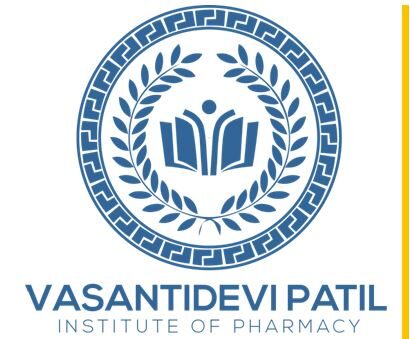Vasantidevi Patil Institute of Pharmacy

VPIP's Code of Ethics
- Human Values and Professional Ethics
As a noble profession Pharmacist acts as a key role for the best use of medication by assisting individuals. This Code, prepared and supported by pharmacists, is intended to state publicly the principles that form the fundamental basis of the roles and responsibilities of pharmacists. These principles, based on moral obligations and virtues, are established to guide pharmacists in relationships with patients, health professionals, and society.
- Human Values and Professional Ethics
In view of the patient-pharmacist relationship a pharmacist has moral duties in response to the gift of trust received from society. In return a pharmacist promises to help individual patient to achieve optimum benefit from their medications, to be committed to their welfare, and to maintain their trust
- A pharmacist acts with honesty and integrity in professional relationships.
A pharmacist should be honest and has a duty to tell the truth and to act with conviction of conscience. A pharmacist avoids discriminatory practices, behavior or work conditions that impair professional judgment, and actions that compromise dedication to the best interests of patients.
- A pharmacist maintains professional competence.
A pharmacist has a responsibility to maintain knowledge and abilities as new medications, devices, and technologies become available and as health information advances for the better patient care.
- A pharmacist serves individual, community, and societal needs.
The primary duty of a pharmacist is to individual patients to give them optimum drug therapy. However, the duties of a pharmacist may at times extend beyond the individual to the community and society.
- A pharmacist respects the autonomy and dignity of each patient.
A pharmacist always promotes the right of self-determination and recognizes individual self-worth by encouraging patients to participate in decisions about their health. A pharmacist communicates with patients in terms that are understandable. In all cases, a pharmacist respects personal and cultural differences among patients
